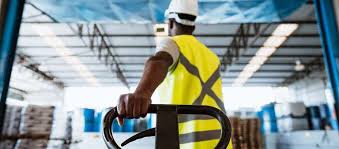


 349,500 Offered Certificates
349,500 Offered Certificates
 24/7 Online Training
24/7 Online Training
 Money Back Guarantee
Money Back Guarantee
 Fully Accredited Courses
Fully Accredited Courses

Created at: 13-11-2024 22:46
Manual handling is a significant aspect of many jobs across various industries in Ireland. With the proper training and awareness of manual handling legislation, businesses can safeguard their employees and remain compliant with the law.
In Ireland, manual handling legislation primarily stems from the Safety, Health and Welfare at Work Act 2005, which emphasizes the importance of health and safety in the workplace. This act sets the regulatory framework that mandates employers to ensure, as far as is reasonably practicable, the safety, health, and welfare of employees while they are at work.
Adhering to manual handling compliance legislation not only enhances workplace safety but also minimizes the risk of injuries, which can lead to costly compensation claims and insurance premium increases. In this context, training plays a crucial role.
Choosing a reliable training provider is essential for ensuring compliance with manual handling legislation in the workplace. At Ireland Safety Training, our comprehensive training programs adhere to the latest Health and Safety Manual Handling Legislation.
We provide tailored training programs focused on the needs of businesses in major cities including Dublin, Cork, and Galway. Our convenient courses are designed for easy access, maximizing participation from various sectors.
In conclusion, understanding and complying with manual handling legislation is vital for any business operating in Ireland. Investing in comprehensive manual handling training legislation Ireland ensures your workforce remains safe and that your business complies with legal requirements. Reach out to us at [email protected] to learn more about our training programs.